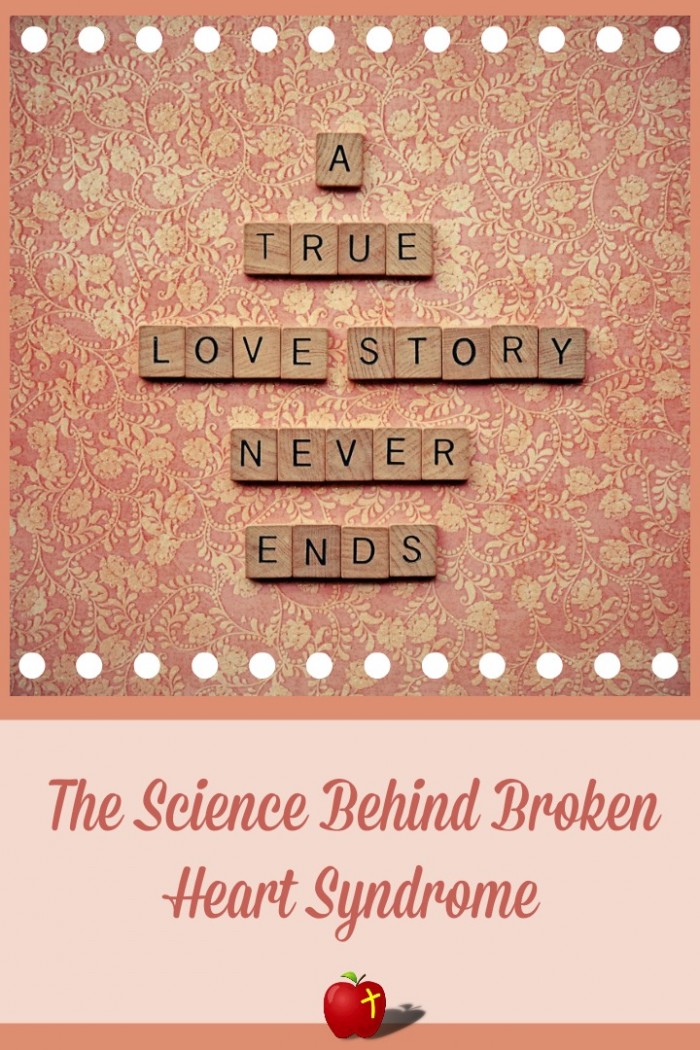You know that movie, The Notebook? (If not, I don’t wanna spoil the ending for you, but the title of this post might be a bit of a give-away…) Ryan Gosling aside, I think most of us can agree that love gives life meaning. And, without it, well, things don’t seem to matter quite so much.
But is it really possible to die from a broken heart?

It’s pretty clear what the characters from The Notebook would say (again, sorry about the spoiler, but seriously: if you haven’t seen that movie by now you’ve been avoiding it on purpose!), but is there really any science to back up this old wives’ tale? Can losing a loved one really make you lose your life?
Researchers seem to think so
In February 2005, The New England Journal of Medicine published a study detailing “stress cardiomyopathy” – a heart condition involving a pattern of left ventricular dysfunction, first described by Japanese doctors as “takostsubo cardiomyopathy” (named, in honor of the shape it creates, after a fishing pot used to trap octopus). Hey, don’t say science isn’t fun!
Stress cardiomyopathy, commonly referred to as “Broken Heart Syndrome,” is a condition of rapid and severe heart muscle weakness caused by intense physical or emotional stress (such as the kind of you might experience during heartbreak). Patients exhibit symptoms similar to heart attack patients (including chest pain, low blood pressure and congestive heart failure). But don’t get confused: stress cardiomyopathy is not a heart attack. As researchers at John Hopkins explain,
…most of the patients with stress cardiomyopathy that both we and others have seen appear to have fairly normal coronary arteries and do not have severe blockages or clots. Secondly, the heart cells of patients with stress cardiomyopathy are “stunned” by the adrenaline and other stress hormones but not killed as they are in heart attack. Fortunately, this stunning gets better very quickly, often within just a few days. So even though a person with stress cardiomyopathy can have severe heart muscle weakness at the time of admission to the hospital, the heart completely recovers within a couple of weeks in most cases and there is no permanent damage.
Other interesting facts: most stress cardiomyopathy patients do not have a history of heart disease and, from what researchers can tell, surviving the condition once does not heighten the chances of experiencing it again (there’s no long-term damage).
It is important to note that while stress cardiomyopathy can be life-threatening, the condition doesn’t usually result in death. However, that doesn’t mean those Notebook folks had it all wrong – just ask Dr. Ilan Wittstein, Assistant Professor of Medicine at the John Hopkins Hospital in Baltimore:
When people say can you die from a broken heart, the answer is absolutely yes.
So that clears that up! But in case you still need more convincing:
A 2012 study showed that after the loss of a significant other, patients’ heart attack risk increased up to 21 times higher within the first 24-hours. Over the next week, heart attack risks remained six times higher – declining steadily over the following month.
The Chicago Tribune quotes several medical experts as agreeing that this phenomenon is “perhaps the most striking example of the link between mind and body.” As Dr. Herbert Benson of the Benson-Henry Mind Body Institute argues,
This is another in a long line of accumulating, well-documented effects of stress on the body. Stress must be viewed as a disease-causing entity.
Whether through stress cardiomyopathy, heart attack or severe depression – science shows that yes, you really can die from a broken heart.
Well, gee – that was fun!
Sorry to burst everyone’s Valentine’s Day bubble! But don’t be discouraged! Love isn’t all doom and gloom! In my opinion (which we’ve already established is one of a hopeless romantic!), love is what makes life worth living in the first place – and, while some might say I’m cheesy, I think anyone who’s seen The Notebook would agree ♥
So on that note, I leave you with a song that shows that no matter what the drawbacks, love’s always worth rushing in :)
Awwwwwww….. ;)
What do you think? Ever notice any connections between love and health in your own life (or in the lives of people you know)?
My post publishing schedule is super random (I really need to work on that! lol)
So if you don’t wanna miss new articles, feel free to enter your email address below and we’ll shoot you a message when new posts go live :) ♥
*Please note: You’ll receive an email asking you to confirm your subscription. Make sure you open and click confirm – otherwise, you won’t get updates! :)
You can also find Prayers and Apples on the social media sites below! ♥
Other Posts You Might Like:
- Positive Psychology: The Science of Beyonce
- How to Be Optimistic (Like a Boss)
- Gluten and Depression: The Jimi Hendrix Experience
- What Percent of Happiness Can We Control?
- Exercise and Mood: The Basics
- ADHD, Autism and the Gluten Connection
- Depression Research Everybody Deserves to Know
References
♥ Image: A True Love Story… by Retro Love Photography
John Hopkins University. Frequently Asked Questions about Broken Heart Syndrome. HopkinsMedicine.org. Retrieved: 15 February 2013.
Johnson, S.R. (2012 February 22). You could die of a broken heart, doctors say. Chicago Tribune. Retrieved: 15 February 2013.
Kurisu, S. Sato, H., Kawagoe, T., Ishihara, M., Shimatani, Y., Nishioka, K., Kono, Y., Umemura, T. & Nakamura, S. (2002). Tako-tsubo-like left ventricular dysfunction with ST-segment elevation: A novel cardiac syndrome mimicking acute myocardial infarction. American Heart Journal, 143(3): 448-455.
Mostofsky, E., Maclure, M., Sherwood, J.B., Tofler, G.H., Muller, J.E. & Mittleman, M.A. (2012). Risk of Acute Myocardial Infarction after Death of a Significant Person in One’s Life: The Determinants of MI Onset Study. Circulation: American Heart Journal. doi: 10.1161/CIRCULATIONAHA.111.061770
Stein, R. (2005 February 10). Science confirms what heart knows: Lost love can kill you. Chicago Tribune. Retrieved: 15 February 2012.
Wittstein, I.S., Thiemann, D.R., Lima, J.A.C., Baughman, K.L., Schulman, S.P., Gerstenblith, G., Wu, K.C., Rade, J.J., Bivalacqua, T.J. & Champion, H.C. (2005). Neurohumoral Features of Myocardial Stunning Due to Sudden Emotional Stress. The New England Journal of Medicine, 352: 539-548. doi: 10.1056/NEJMoa043046








I love this post!! You know, I didn’t know there was such a thing. I can totally see how stress and dealing with a broken heart can effect our lives. My very first relationship was HORRIBLE and ended HORRIBLY. Up and down, all over the place, crushed….a hot mess. It took me two years to get back to a place that I could function and not allow myself to bother me. I was so depressed and it spilled into every apsect of my life. I felt sick and ended up having the flu, strep and nearly pneumonia all in a span of 3 months.
Very informative Jessica! Thank you!
So sorry to hear that!! :( ..so glad that part of your life is in the past!! ..but on the good side, maybe that’s just another thing that makes this time around all the more special and fun ;)
I KNEW The Notebook was right!! :) Thanks for researching this. Very interesting stuff!
The Notebook never lies! LOL :)
Your post provides support to life as I have learned it to be as I continue my over 29 year journey with the same man. Every now and again you come across a couple that you just know will last the test of time and then some..its the ‘then some’ your post solidifies for me.
Love your posts Jessi! I love this one. You are a fabulous writer.
Aww!! Thx Laura! :) That just made my night! Hope you’re having a good wkend! :) xo
I have a friend who went in to wake her High School Foreign Exchange student and she was DEAD! Next week she had an “episode” and Docs told her you really CAN have a broken heart.
Look at how many older couples die within months of each other.
READ THE BOOK! It’s SO much better!!! Different ending, even a sequel, The Weddding, with grandpa in it! I love Nicholas Sparks but I find myself continually looking at his picture on back cover to make sure he is really a man.
MAW
Oh my gosh!! I’m so sorry about your friend’s loss! One of my friends and I were just talking about how many older couples die within months of each other last night – it really is something! ..I’m curious about this sequel, The Wedding! I’ll have to look into it.. and LOL about Nicholas Sparks ;) haha :)
That was a fascinating treatise of broken heart syndrome. So true and good for thought. I am very blessed to have been married to my sweetheart for almost 38 years. Wonderful! So glad to be connected. blessings, Amy
38 years! Such an inspiration :) ..I hope I’m as blessed some day! :)
This post hits home for me. My husband lost his grandmother when I was pregnant with my first child; I lost my grandmom when I was very prego with my second. Both times, we thought our respective grandfathers would be gone very soon, based on anecdotal evidence (and now fact, huh?) Not so. They are oddly thriving. I’m not sure what this says. They were both super-committed and loving husbands. Odd.
I’m so happy they’re both still with you :) I think just like with all medical conditions, there’s no one-size-fits all when it comes to grief and how it affects the body. For example, even though heart attack risk goes up, that doesn’t mean that everyone with a heightened risk will actually have one. I think strong social support (from friends and family) as well as prior medical conditions (both physical and mental) plays a strong role, too. No matter what the reason, it’s so great they’re both doing so well!! :)
Wow, this is fascinating. I’ve always wondered, but never knew there was actual science and research that had been done on the matter. The increased risk statistic is pretty extreme! Thanks for sharing all this great information, and for making us all do a little thinking on the matter.
You’re welcome! I love digging around and trying to find the ‘actual science’ :) Sometimes it takes a while (ok: like DAYS lol) but it’s usually there ;)
True story, a friend of mine did, in fact, die of this. He was an older gentleman attending the funeral of his brother when he received a phone call with news of one of his closest friends (also a very close friend of mine) passing away, which in turn sent him into exactly what you wrote about, Stress cardiomyopathy, commonly referred to as “Broken Heart Syndrome,” and we lost him a few days later. This was in May and I lost my mother on Valentine’s Day that year… We had a couple other friends pass away that year too. I call it “The year of losses”. There were too many. Still healing.